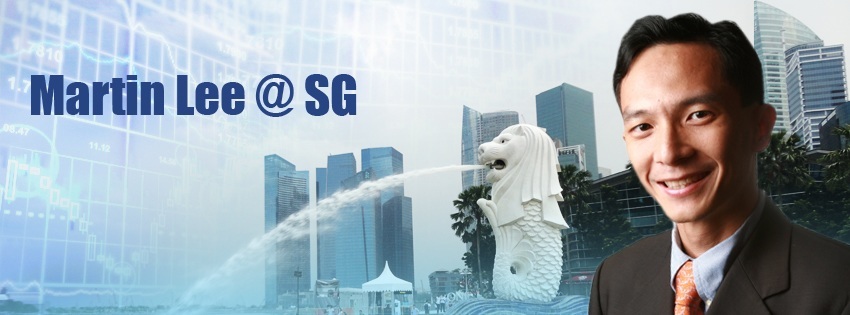Alexander Elder Seminar Review Day 1 Afternoon
Before the start of the afternoon session with Dr Alexander Elder, there was lunch provided for all the attendees (which was paid for by our $100+ afternoon ticket).
Compared to the “mad rush for food” behavior at many AGMs, the crowd was pretty gracious and everyone queued up orderly for food. What a relief. 🙂
Most people who came from the morning session were done with lunch by 1pm and waited in the auditorium for the afternoon’s session to start.
There was a short briefing for the Phillip Securities remisiers (from estimates there are more than 100 of them in the audience) which was conducted with the rest of the public listening in.
Similarly to the first session, we had Henry from Macquarie giving the same presentation on warrants, and so Dr Elder was left with about 3hr 40min air time. Minus off the tea break time, it was probably around 3h 10min only.
Alexander Elder talked a bit about trading psychology, and why intelligent people lose money.
My points below are a bit disorganized and go more by chronological order, as Dr Elder liked to jump from his slides to charts and then to answering questions quite randomly. He did a lot of chart reading (including Singapore stocks), but I will not touch on those.
Most or all people start trading with the objective of making money. But along the way, many people lose sight of the objective. They start trading for fun, out of boredom, or for excitement, which in most cases is detrimental to your trading capital.
Many people also count money (profits or losses) when trading, which result in bad trades.
It is easy to promise to be a disciplined trader when the market is closed, but most people lose discipline after it opens. So, it is always essential to have a written trading plan. Know the target profit area, stop loss level, and grade your trade according to how well you follow it.
And never talk about your trades until it is closed, as it will affect your decision to close it when the time comes.
Learn all about the market you are trading.
Allocate a certain amount of time to the market each day doing reading or analysis. Trading requires hard work and you will always need to spend time on it.
Learn and be open to new ideas but remain skeptical of claims.
Try to develop a steady increasing equity curve with shallow drawdowns.
Follow your money management rules as if your life depended on them.
In terms of trading methodology, Dr Elder always uses exponential moving average and not simple moving averages. 13 and 22 EMA lines are used to define the “value zone”. If the price falls outside the value zone, it is over-priced and vice-versa.
There are also envelope lines which are used to indicate 95% of price action. If the price falls outside the envelope lines, then it is very over-priced or under-priced and no trade will be taken. Where
EMA + k x EMA (22)
EMA – k x EMA (13)
are used to define the envelope lines. K is a constant which will vary depending on which markets you trade, so you need to do some trial and error to find which value of k will capture about 95% of the data.
He doesn’t use Bollinger Bands for this purpose as they are a function of volatility and he thinks they are more useful when you are trading options.
How do you reduce risk from gaps?
Take smaller positions, and never trade around earnings reporting periods.
Should we specialize in markets or use filtering software to screen out trades to take?
Good idea to trade a handful of stocks and know them well.
Overall, I thought there was too much time spent on chart reading. Many people in the audience seemed to like it (the stock tips) but I’m not so much of a TA person. And I would prefer being taught how to fish, then being given the fish.
